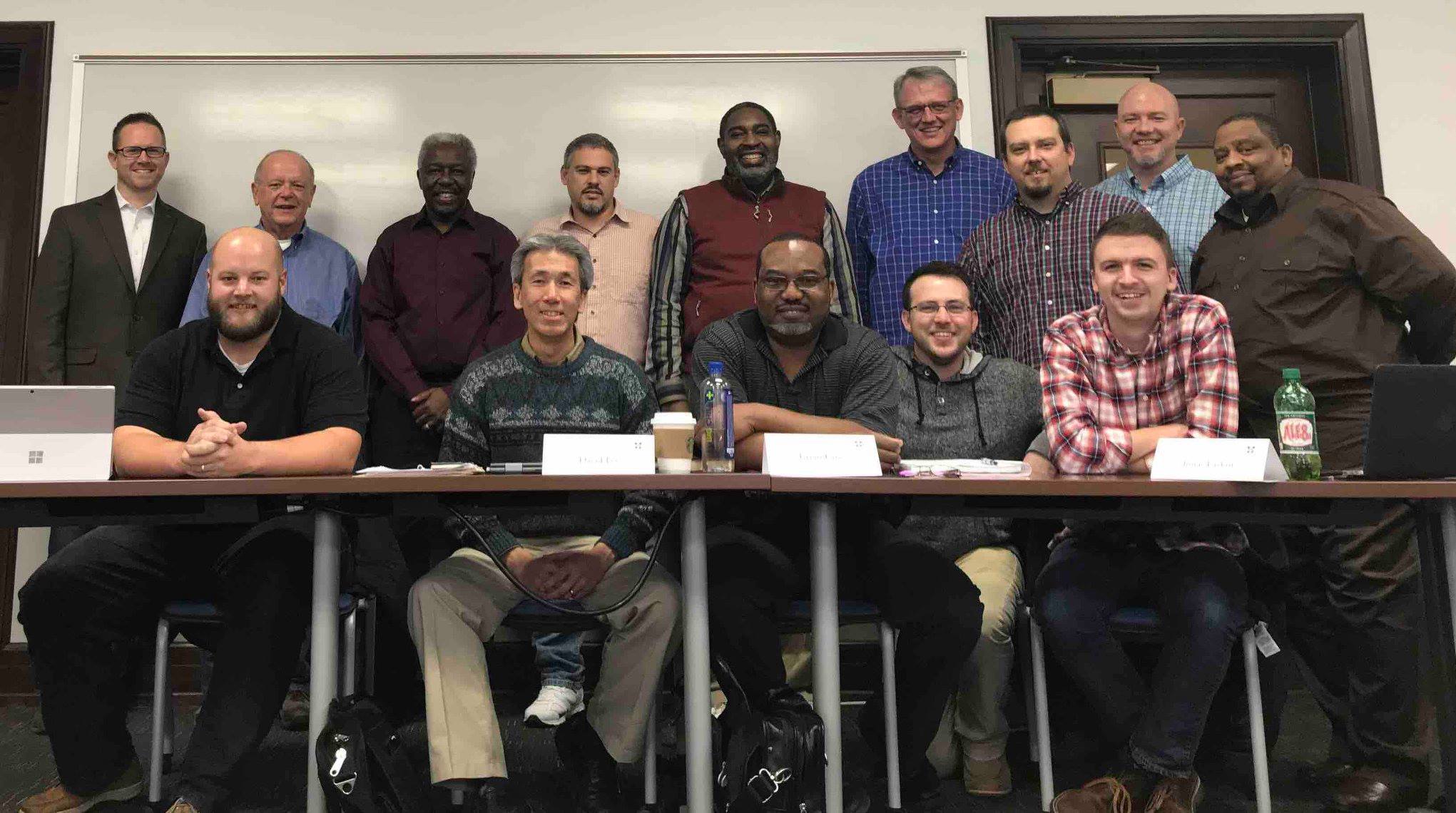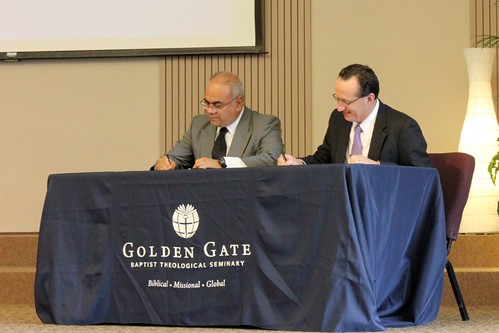Wow! I can’t believe it’s been almost three years since I started my doctoral courses.
Last week I took my final (of six) seminar called “Foundations of Teaching.”

I’m a few steps away still from getting my doctorate, but the in-class portion is finished. Now I have some projects AND the BIG PROJECT to finish up and turn in, then I have to defend it, and then I will graduate (hopefully by December).
Thanks to all who have been praying for me during this time. It’s been a lot of reading, thinking, and writing. It’s also been a lot of fun and good relationships along the way.
Please pray that I can finish well and get the projects done in a timely manner.

When we started with Youth Ministry International, the main focus of the youth ministry training that they were involved in was informal, seminars and conferences to help local church youth workers. YMI trainers would also informally mentor local church youth workers in various countries, but there was very little formal structure beyond the level one or level two seminars that they would teach.
All of that changed when we were invited both in the Ukraine as well as Mexico to begin formal youth ministry training programs in Seminaries.
Of course, for me, that meant that I would begin my missionary work as a professor at the Mexican Baptist Theological Seminary. The formal aspect of the youth ministry training has provided some benefits that weren’t present in the informal strategy that we were employing as an organization before the change. Here’s what I think happens when we train youth workers at the formal level.
- Elevate the view of youth work: the local church comes to see youth work as more than just entertaining young people that anyone can do. In many cases it has come to be seen as an important ministry within the local church with trained leaders who come alongside the parents to disciple the youth of their communities.
- Increase the quality of local church youth ministry: obviously, with better training comes better quality ministry. That is not to say that those with no training cannot effectively minister, but the more we reflect with youth workers on how to better minister to young people, the more effective the youth ministry becomes in the local church.
- Produce local experts on the subject of youth ministry: again, with formal academic work comes an elevated thinking process on the subject, and after spending time in a classroom thinking about and discussing youth ministry, as well as doing projects that require work, our students become the local experts in the field of youth ministry.
- Multiply ministry: Every one of our graduates in Latin America is involved in training others. The “experts” are expected to teach others what they have learned, and this multiplies the ministry of training because they want to teach others.
- Evaluation of theories and practices: when you only go in for one weekend and do a youth ministry training event, you have little interaction and evaluation of the best practices and theories in ministry. At least in a four year bachelor’s degree program (or more if you are the professor), you can evaluate the principles and practices of youth ministry and have a long haul mentality of what works in youth ministry.
Over the next 15 years, our Latin America team hopes to begin 60 formal youth ministry programs in Latin America, which will have the capacity to graduate and certify over 3,500 local church youth pastors.
Please join us in prayer as we continue to train youth workers at both the formal and informal level.
Check out the video below of the graduates from our formal training programs around the world.
We already wrote here about the new group of Certificate students here in Mexico City, but this weekend we took a photo of the students after class so we could introduce them to you.

From left to right, the students are: Patti, Ari, Esther, Angelica, Harim, and Bersabi
Please be praying for them this year as they study. Inevitably there are always things that come up and obstacles that try to stand in the way of them finishing the program. Please keep them in prayer this year as they study and come to class each Saturday.
Day Out at the Seminary from Dennis on Vimeo.
Monday was a holiday in Mexico, so none of the kids were in school. The weather has been great, so everyone was outside in the afternoon yesterday. The kids were playing and having a general good time, so I decided to record a little video.

For the last 8 years I’ve had the privilege of teaching at the Mexican Baptist Theological Seminary, and I’ve learned that ministry is best done together with people who have similar vision and values.
This past week, I traveled with the dean and president of the Seminary to San Francisco to meet with the leadership of Golden Gate Baptist Theological Seminary, one of the 6 Southern Baptist Seminaries in the USA. The two presidents of the two Seminaries (pictured above) formally signed an agreement to work together to advance theological education in both countries.
It was a great trip. I had fun spending time with Daniel and Misael and the other missionary that went with us, and it was great to meet so many professors from Golden Gate. I am excited to see what happens in the future with this partnership.







